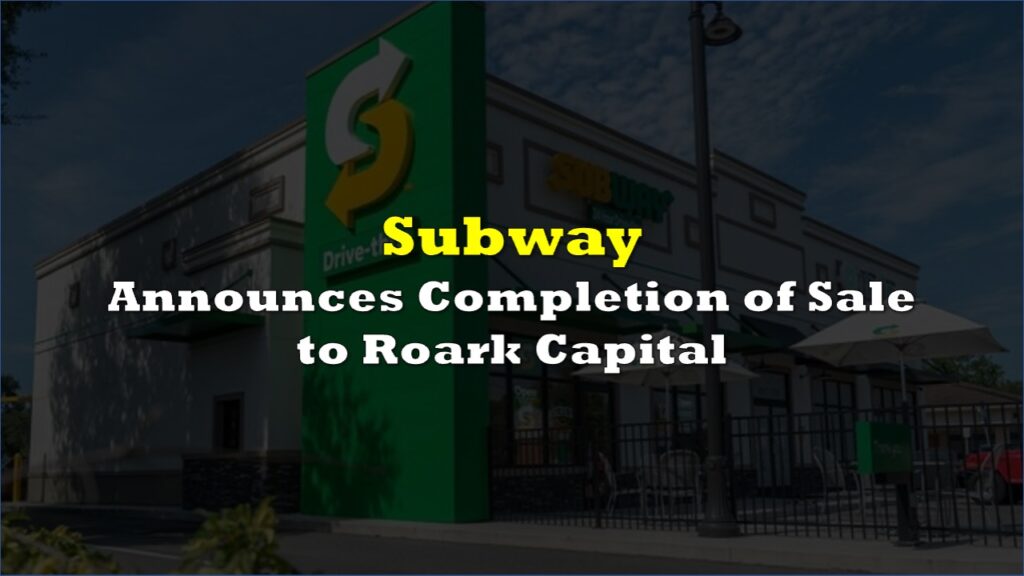Sandwich chain Subway is scrambling to address plunging sales and profits across its 19,000 North American locations. In a move that underscores the gravity of the situation, the company has called a meeting with its franchisees to discuss urgent strategies aimed at reversing the downturn.
The hastily arranged meeting follows troubling signs of financial distress within the chain, which was acquired in April for $9 billion by Roark Capital, the investment firm that also owns Dunkin’, Arby’s, and The Cheesecake Factory. Subway’s decision to gather its franchisees in this manner has sparked concerns, with some franchisees describing the meeting as an “emergency” and pointing to recent struggles as the impetus.
“This conference is essential,” Subway stated in the invitation sent to franchise owners. “Join us to discuss the state of the industry and an update on our business.”
Franchisees have been grappling with a sharp decline in sales, exacerbated by aggressive discounting strategies that, while intended to drive customer traffic, have instead eroded profits. One franchisee with nearly 20 stores reportedly claimed that his same-store sales have dropped between 5% and 10% in recent weeks compared to the same period last year.
“They are doing crazy coupons,” the franchisee complained. “Our gross sales are not even at 2012 levels, and profit then was five times what it is today.”
These promotions, including a recent national campaign featuring NBA legend Charles Barkley urging customers to “Buy any foot-long in the app and get one free,” have caused frustration among franchisees. The steep discounts—such as offering three sandwiches for $17.99—have left many locations struggling to break even.
“Charging $6.99 for any sub while they are $11 on the menu,” the franchisee added, highlighting the unsustainable nature of the pricing strategy.
Data from various regions paints a bleak picture for Subway. In an Eastern U.S. region comprising approximately 1,000 stores, average weekly same-store sales fell by 8.7% between June 25 and July 16 compared to the previous year. Similar trends have been reported on the West Coast, where sales in Los Angeles and San Diego are down by 8% as of the week ending August 6. Even suburban areas in Southern California have seen sales drop by 2% to 5%, further indicating widespread struggles.
This decline is particularly alarming given that Subway had reported a 5.9% increase in North American same-store sales just last year. The current slump suggests that the chain’s discounting strategies are failing to generate the intended boost in customer traffic, leaving franchisees in a precarious financial position.
Restaurant consultant John Gordon, who has observed the recent downturn in Subway’s performance, noted the unusual nature of the meeting. “Subway’s meeting seems very unusual,” Gordon said, referencing the company’s past performance and current challenges.
Subway, which does not own any of its restaurants and generates revenue through an 8% royalty fee from franchisees, now faces additional pressure due to the debt incurred from its sale to Roark Capital. With declining earnings threatening its financial stability, the company is in a precarious position.
The broader fast-food industry has also been feeling the strain, with many chains resorting to discounts to attract cost-conscious consumers. White Castle, for instance, recently cut the price of its sliders to the lowest level in over a decade. Despite these efforts, the industry as a whole saw same-store sales decline by 2.9% in July, compared to a 1.9% drop in June, according to Bank of America credit and debit card data.
Taco Bell, however, bucked the trend with a 5% increase in sales, while Wendy’s and Burger King managed to stay flat in the second quarter. Even McDonald’s, which typically leads the industry, reported its first decline in same-store sales in four years, down 0.7% in the second quarter.
Subway’s introduction of new menu items, such as the $3 foot-long hot dipper snacks launched in June, has so far failed to generate significant sales. Last year’s success with Sidekicks—foot-long cookies, pretzels, and churros—offered some hope, but the buzz has since faded, leaving Subway struggling to replicate that momentum.
Information for this briefing was found via New York Post and the sources mentioned. The author has no securities or affiliations related to this organization. Not a recommendation to buy or sell. Always do additional research and consult a professional before purchasing a security. The author holds no licenses.






